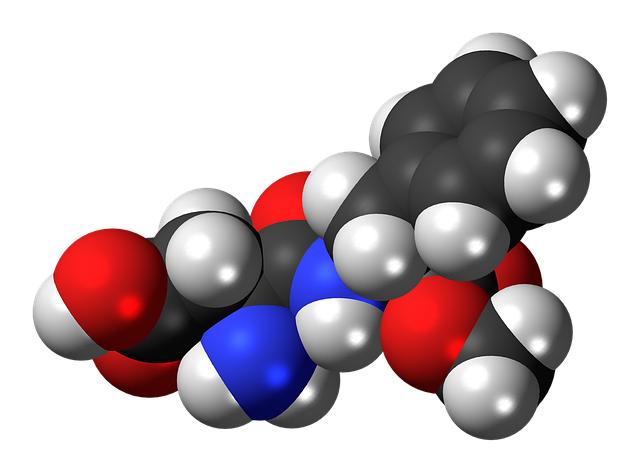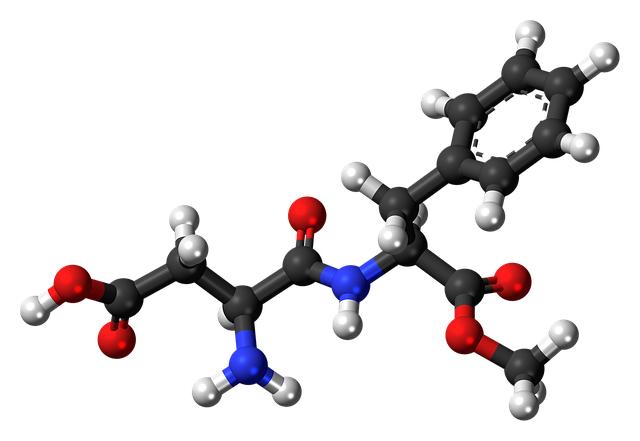Mountain Dew Zero and Aspartame: The Facts Revealed
Hey there, Mountain Dew lovers! Are you curious about the new Mountain Dew Zero and its controversial ingredient, aspartame? Well, buckle up as we delve into the facts and myths surrounding this zero sugar soda. In this article, we will reveal everything you need to know about Mountain Dew Zero and aspartame to help you make an informed decision. Stay tuned to find out the truth behind this buzzworthy beverage!
Contents
- – Introducing Mountain Dew Zero: A Sugar-Free Alternative
- – Unveiling the Truth About Aspartame in Mountain Dew Zero
- – Understanding the Health Implications of Aspartame Consumption
- – Dissecting the Controversy Surrounding Aspartame and Health
- – Exploring the Benefits and Risks of Choosing Mountain Dew Zero
- – Fact-Checking: Separating Myths from Realities About Aspartame
- – Practical Tips for Moderating Aspartame Intake in Mountain Dew Zero
- – Making Informed Decisions: Is Mountain Dew Zero with Aspartame Right for You?
- The Way Forward
– Introducing Mountain Dew Zero: A Sugar-Free Alternative
Mountain Dew Zero is the latest addition to the Mountain Dew family, offering a sugar-free alternative without compromising on taste. One of the key ingredients in Mountain Dew Zero is aspartame, a popular artificial sweetener that is used in many diet sodas and other low-calorie food and beverages.
Aspartame has been the subject of much debate over the years, with some claiming it is harmful to health while others argue it is perfectly safe for consumption. The truth is, aspartame has been extensively studied and approved by regulatory agencies around the world, including the FDA and the European Food Safety Authority. It has been deemed safe for the general population, including children and pregnant women, when consumed within recommended levels.
So if you’re looking for a refreshing, sugar-free drink option, give Mountain Dew Zero a try. With the great taste of regular Mountain Dew but without the sugar, it’s a guilt-free way to enjoy your favorite soda.

– Unveiling the Truth About Aspartame in Mountain Dew Zero
In recent years, there has been much debate surrounding the use of aspartame in diet sodas, including Mountain Dew Zero. Many people believe that aspartame is harmful to health, while others argue that it is a safe alternative to sugar. So, what is the truth about aspartame in Mountain Dew Zero?
First and foremost, it is important to understand that aspartame is a low-calorie sweetener that is used in many diet beverages to provide a sweet taste without the added calories. According to the FDA, aspartame is considered safe for consumption at recommended levels. In fact, numerous studies have shown that aspartame is not harmful to health when consumed in moderation.
So, if you enjoy the taste of Mountain Dew Zero but are concerned about the use of aspartame, rest assured that it is a safe ingredient that has been extensively studied and deemed safe for consumption by health authorities.

– Understanding the Health Implications of Aspartame Consumption
Despite its widespread use in diet sodas like Mountain Dew Zero, aspartame has been a source of controversy when it comes to its potential health implications. While the FDA and other regulatory bodies have deemed aspartame safe for consumption, some studies have raised concerns about its effects on health.
Some potential health implications of aspartame consumption include:
- Weight Gain: Some studies suggest that aspartame may actually lead to weight gain by tricking the body into craving more sugar and carbohydrates.
- Metabolic Syndrome: There is evidence to suggest that aspartame consumption may be linked to an increased risk of metabolic syndrome, which includes symptoms like high blood pressure and elevated blood sugar levels.
- Headaches: Aspartame has been associated with headaches and migraines in some individuals, although more research is needed to determine the exact cause.
| Health Implication | Potential Impact |
|---|---|
| Weight Gain | Tricks body into craving more sugar |
| Metabolic Syndrome | Increased risk of symptoms like high blood pressure |
| Headaches | Associated with headaches and migraines |
– Dissecting the Controversy Surrounding Aspartame and Health
Aspartame, the controversial artificial sweetener, has been at the center of debates about its impact on health for years. One popular drink that has recently come under scrutiny is Mountain Dew Zero, which contains aspartame as a sweetening agent. Let’s delve into the facts surrounding this topic and see what the research has to say.
Here are some key points to consider:
- Aspartame Safety: Despite concerns raised by some studies, regulatory agencies like the FDA and EFSA have deemed aspartame safe for consumption within established limits.
- Health Effects: Some individuals may experience adverse reactions to aspartame, such as headaches or digestive issues, but these effects are not universal and vary from person to person.
- Alternatives: For those wary of aspartame, there are plenty of alternative sweeteners available on the market, such as stevia, erythritol, or monk fruit extract.
– Exploring the Benefits and Risks of Choosing Mountain Dew Zero
When it comes to choosing a low-calorie soda option, Mountain Dew Zero can be a tempting choice for fans of the original beverage. However, it’s important to weigh the benefits and risks before making the switch. One of the biggest concerns with Mountain Dew Zero is its use of aspartame as a sugar substitute. Aspartame has been a controversial ingredient, with some studies linking it to negative health effects.
On the benefits side, Mountain Dew Zero offers the same bold flavor of the original Mountain Dew without the added sugar and calories. This can be a great option for those looking to reduce their sugar intake while still enjoying a refreshing soda. Additionally, Mountain Dew Zero contains caffeine, which can provide a pick-me-up for those needing an energy boost.
Ultimately, the decision to choose Mountain Dew Zero comes down to personal preference and tolerance for aspartame. It’s important to consider the potential risks and benefits before incorporating this beverage into your daily routine.

– Fact-Checking: Separating Myths from Realities About Aspartame
There has been a lot of confusion and misinformation circulating about the use of aspartame in Mountain Dew Zero. Let’s set the record straight and separate the myths from the realities about this controversial sweetener.
Here are some key facts to consider:
- Aspartame is safe: Numerous scientific studies have confirmed that aspartame is safe for consumption. Regulatory agencies such as the FDA, EFSA, and WHO have all approved its use in food and beverages.
- Mountain Dew Zero contains aspartame: Mountain Dew Zero is sweetened with a blend of aspartame and acesulfame potassium. This combination provides the same great taste as the original Mountain Dew but with zero sugar.
- Aspartame does not cause cancer: Despite some rumors to the contrary, there is no credible evidence linking aspartame consumption to an increased risk of cancer. It is one of the most thoroughly studied food additives and has been deemed safe for the general population.
– Practical Tips for Moderating Aspartame Intake in Mountain Dew Zero
One practical tip for moderating your aspartame intake in Mountain Dew Zero is to limit your consumption to one or two cans per day. This can help reduce your overall intake of the artificial sweetener while still allowing you to enjoy the refreshing taste of the soda. Additionally, you can also alternate between drinking Mountain Dew Zero and other beverages that do not contain aspartame to further reduce your exposure to the sweetener.
Another tip is to pay attention to your overall diet and try to incorporate more natural, whole foods that do not contain artificial sweeteners. By focusing on a well-rounded diet rich in fruits, vegetables, lean proteins, and whole grains, you can reduce your reliance on artificially sweetened beverages like Mountain Dew Zero. Remember, moderation is key when it comes to consuming aspartame, so be mindful of your overall intake and make adjustments as needed.
Incorporating healthier alternatives to sugary and artificially sweetened beverages can also help in moderating your aspartame intake. Consider replacing Mountain Dew Zero with options such as water, herbal tea, or sparkling water with a splash of fresh fruit juice. These alternatives can help satisfy your cravings for a fizzy drink without the need for artificial sweeteners. Remember, making small changes to your diet and beverage choices can have a big impact on your overall health and well-being.
| Tip | Details |
| Limit consumption | One or two cans per day |
| Alternate beverages | Switch between Mountain Dew Zero and other drinks |
| Focus on whole foods | Incorporate natural, unprocessed foods into your diet |
– Making Informed Decisions: Is Mountain Dew Zero with Aspartame Right for You?
Mountain Dew Zero is a popular beverage known for its bold flavor and zero sugar content. However, the use of aspartame as a sweetener in Mountain Dew Zero has sparked controversy among consumers. Aspartame is an artificial sweetener that has been the subject of much debate regarding its safety and potential health risks.
Before making a decision on whether Mountain Dew Zero with aspartame is right for you, it’s important to consider the facts. Here are some key points to keep in mind:
- Aspartame is approved by the FDA and considered safe for consumption in moderate amounts.
- Some studies have linked aspartame to potential negative health effects, such as headaches and digestive issues, in sensitive individuals.
- Individual tolerance to aspartame can vary, so it’s important to listen to your body and make an informed choice based on your own health and preferences.
The Way Forward
In conclusion, Mountain Dew Zero is a popular choice for those looking to enjoy a sugar-free soda option. With the facts revealed about its use of aspartame, it’s clear that this artificial sweetener is safe for consumption in moderation. Remember, balance is key when it comes to your health and nutrition choices. So go ahead and enjoy that crisp, refreshing can of Mountain Dew Zero guilt-free! Stay informed, stay hydrated, and cheers to making smart choices for your well-being. Thanks for tuning in!







